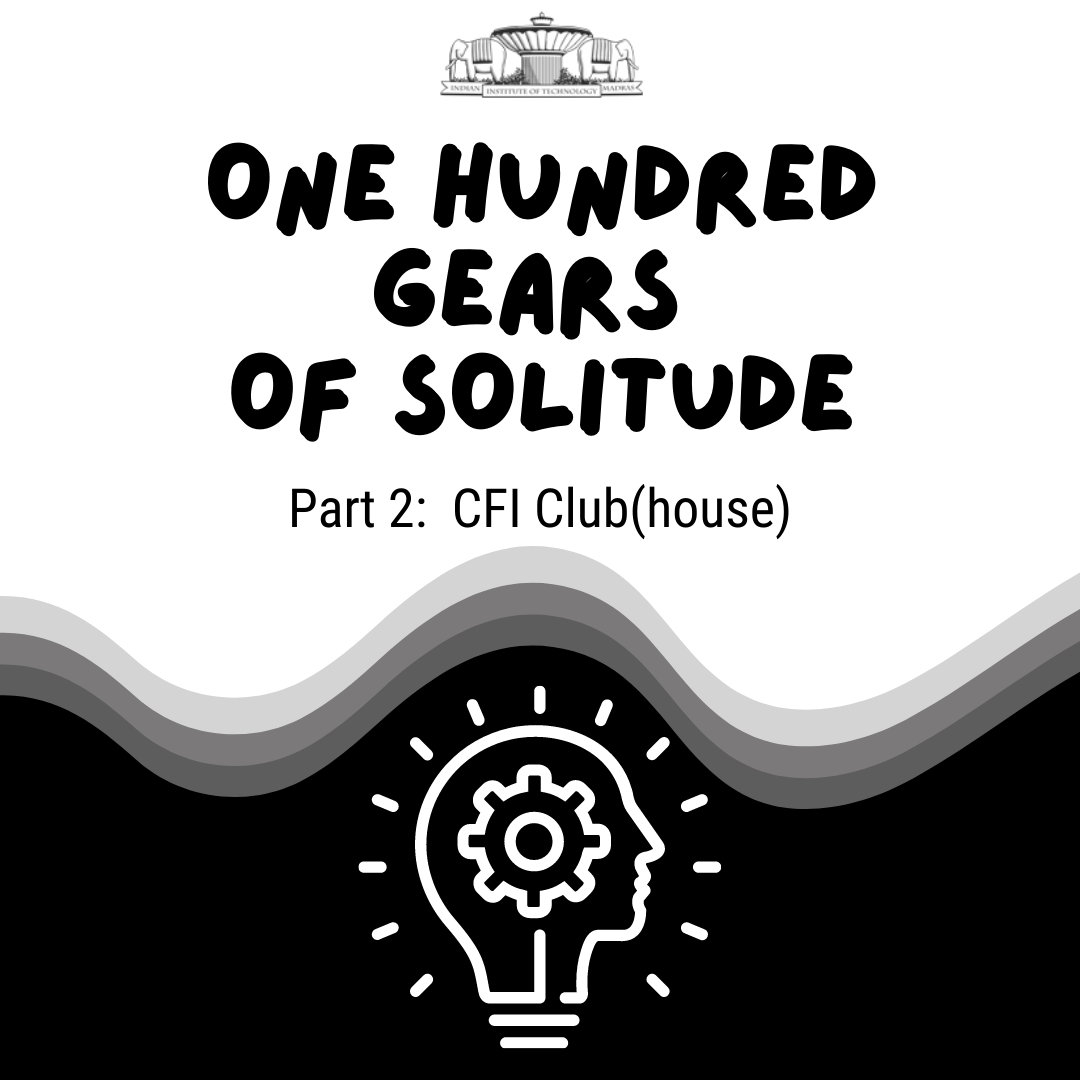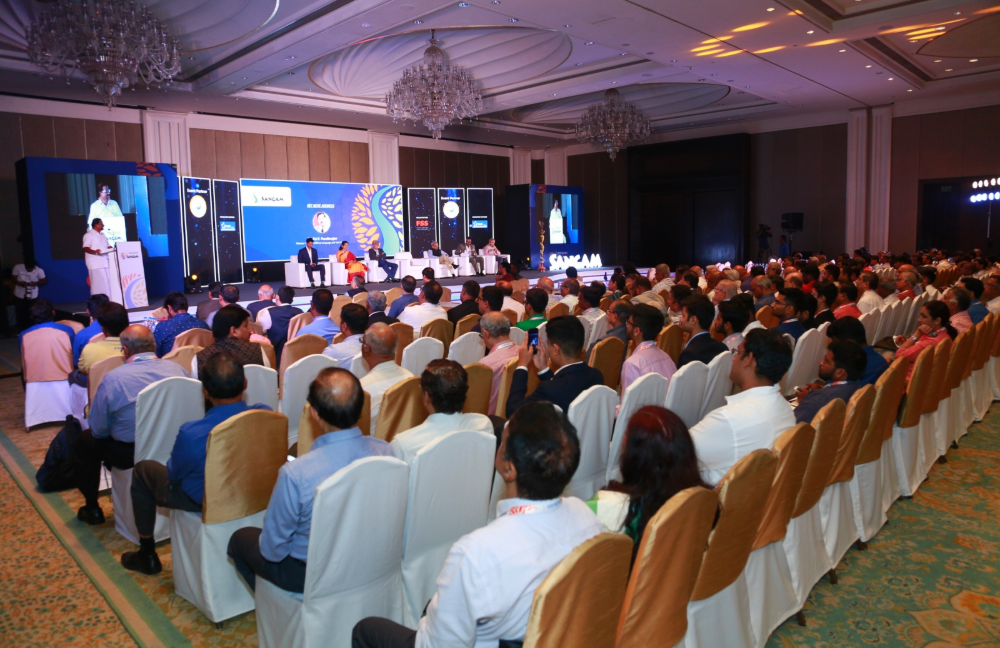Edited by Rohini Dikshit
Design by Reshma
“After a fresh round of recruitment, we had to leave insti on March 17, 2020, the night our first All Team Meet was scheduled. The Online scenario left us baffled initially, with most of the teammates not having met each other. We thought we would all go back by June 2020, and things would be alright. But nothing like that happened. “
These were the words of the I-GEM club Head 2020-21. The entire tech community in the institute came to a standstill due to the unprecedented pandemic. It took people some time to realise and accept that online is the new normal and that coming to terms with the virus was the only solution. T5E spoke to clubs under the Centre For Innovation (CFI) on how they were affected by the pandemic and how they are adapting to the situation.
Most of the clubs in CFI comprise the heads, coordinators, and project members. The work of all three is interdependent and compliments each other. The heads and coordinators are responsible for conducting club activities throughout the year, cultivating and fostering the tech culture in insti, managing the projects, and, most of all, facilitating learning. Project members, on the other hand, focus on research, experimentation, and building the project.
Electronics Club
“When I became the core this year, we had to face potentially the same set of problems that our Heads faced… As this is no longer a new thing, slowly everyone has gotten used to the online setup.”
The Electronics Club is, naturally, a club dependent on hardware. One of the significant problems in an online setup is, therefore, hardware distribution. Last year, all of the club projects were hardware-focused, so distributing components to people staying in different parts of the country was very cumbersome.
To ensure that new entrants to the club have a good learning curve, the club introduced projects that involve more software elements. This initiative proved to be beneficial as people got to explore new domains within electronics itself. They also have a plan of action for prototyping this year, which involves dividing the projects into modules that can be assembled later and worked on individually by team members.
The Electronics club conducted a mega session last semester where students worked on building their own custom development board and curated a kit that the club shipped to people across the country for the session. Due to this initiative, a few of the club members this year have MCU and other essential hardware to begin with.
Last year the heads introduced CTs (Coord Tasks), where coordinators got the opportunity to explore and learn through building mini-projects in different domains of electronics, from digital design to IoT, wireless communication and robotics. This was a well-received initiative that the club plans to continue this year and possibly churn it better to maximize the learning curve and have a focused output.
The Electronics club conducted a mega session last semester where students worked on building their own custom development board and curated a kit that the club shipped to people across the country for the session.
To make up for the lack of team bonding, the club has also had frequent game parties, dinner parties, and informal meetups with the Coords and Cores, where everyone got to know each other better. The boom in browser games and online food delivery has made online interaction a tad bit more fun than the ol’ skype days.
Without a doubt, this is a shadow in Plato’s cave compared to how it could have been on campus, but the club has made the best of what they had and what they could do.
Horizon Club
Horizon club nurtures the culture of natural sciences and astronomy in insti. It is one of the oldest clubs in IITM and is a lot older than CFI itself. In fact, some of the club’s earliest coords are now professors in IITM. There exists a distinct culture in the club due to this prestigious heritage.
However, the lockdown diminished Horizon’s ability to maintain and live up to this glory. The club is all about observation and experimentation. The pandemic rendered all the equipment and resources useless.
“For the past 1.5 years, we haven’t looked at telescopes. None of our current coords or heads have experience of handling all the telescopes. It was our club’s tradition to visit Vainu Bappu Observatory every year. We haven’t been there for two years now.”
Last year, the club took up a student-suggested project called Sounding Rocket. They planned on competing in Spaceport America Cup, the world’s largest intercollegiate rocket engineering competition, in 2021, thereby becoming the first IIT in the country to do so.
But due to the pandemic, it was practically impossible to get a prototype ready. Hence, unfortunately, the team had to drop the idea. Similarly, there were other instances where the team had to compromise on their innovative projects because of the restrictions imposed by the pandemic.
The team has now shifted from observing and gathering data to using gathered data and generating simulations based on it. Additionally, the pilgrimage to observatories was replaced by online video call meets where the team would visit NASA’s virtual star system to simulate the experience.
The club also conducted Horizon Summer School, where they led budding astronomy enthusiasts on a fun journey through the universe using interactive presentations and virtual stellariums.
I-Bot
I-Bot is another hardware-focused club that works on building robots to ease human lives. The club was bound to face issues similar to the Electronics Club. However, their distinguished approach managed to make the best out of a seemingly hopeless situation.
“PoRs offered in Saarang and Shaastra are majorly or purely managerial, so team bonding occurs quite naturally. CFI being a technical community, meetings were focused mainly for ideation of the projects.”
To increase team bonding, the team made it a rule to have informal meetings twice a month where they involve all coords and get an idea of what each member has been working on regarding projects.

They planned to focus on simulation-oriented teaching and summer school. The club has registered for two competitions – Escalade and Flipkart Grid with the Electronics Club). Though working remotely is a challenge, the club believes these competitions will be helpful in facilitating knowledge transfer and hands-on experience.
The club took up several other projects in different fields of interest, such as Cricket Bot, Robotic Personal Assistant, Hexapod, Multi-purpose Agricultural Vehicle, and Triphibian Robot.
Analytics and CVI Club
The Analytics club and CVI (Computer Vision and Intelligence) club together represent the AI (Artificial Intelligence) and ML (Machine Learning) enthusiasts community in the institute. The work for both the clubs was quite possible online. In fact, the clubs used the lockdown to boost their projects and learning sessions.
Yet, they too encountered the issues of team building. Nothing beats sitting together and making content for sessions and coding. Moreover, collaboration with other clubs was majorly affected by an online sem, an overall loss for CFI.
The clubs conducted extensive workshops and sessions on AI as the online format gave people more accessibility and opportunity for understanding. They also participated in many hackathons, including the ones conducted by prominent companies like Amazon and Flipkart. The team formed and trained a contingent for Inter-IIT, which helped the members to hone their skills even further.
The clubs conducted extensive workshops and sessions on AI as the online format gave people more accessibility and opportunity for understanding.
The lockdown didn’t stop the clubs from taking up various exciting projects. For example, the Analytics club had AI projects to help farmers predict the demand for crops and plan their harvest accordingly. They also had an Natural Language Processing based project revolving around music genre recognition which used old retrieved manuscripts and state of the art methods to try and predict the market better.
I-GEM club
The team was preparing for the upcoming iGEM (International Genetically Engineered Machine), the global annual synthetic biology competition, when the smail regarding campus closure due to COVID-19 was sent out. The team was dispersed, with communication being only through video calls.
The consequences? The team was unable to participate in iGEM in 2020, owing to limited access to funds and difficulty of finding sponsors amidst the grim situation. Collaborations and Science Communication was the only thing that helped them paddle through last year.
“[regarding problems over the lockdown period] in addition to not being able to participate and suffering from the lack of access to labs, like most other teams, I would say team bonding, productivity, and the spectrum of projects we could do has taken a hit. But, the pandemic has taught us how to keep going and make the most of the resources that we have.“, said a team member.
The first effect of the pandemic is that the club has taken a step beyond being just a competition team and have opened itself to other synthetic biology events and to conducting more sessions within insti. Out of the eagerness to get back to labs, an idea for a workshop aimed to bring labs to people was conceived.
The club organised a hands-on workshop in association with Cambrionics Life Sciences, a company focused on promoting accessible, hands-on biology learning for all. Kits were sent to the participants’ homes, who got to build their own microscope, isolate DNA, and grow bacteria from the comfort and safety of their homes.
They also conducted a summer school this year called Synteraction. The team collaborated with several other iGEM teams across the world as a part of the Accessibility Campaign. With teams from BITS Goa and the University of Rochester, they explored different mediums to spread science, including dance.
With the iGEM team of Denmark Technical University (DTU), a list of signal peptides (which are like address tags, directing proteins for export) was procured, and a comic strip explaining their project was created.
Over the pandemic, the club got the chance to streamline the recruitment process and make it more structured. Applicants have become more diverse in the last two years, with people from the Chemical, Mechanical, Engineering Physics, and Physics departments also showing interest in the club.
Additionally, the earlier approach to problems was primarily focused on an experimental point of view, and modelling was a mere supplement. Now, being forced to restrict themselves to modelling and experimental design work from homes, the possibilities in these streams have opened up immensely. This has also helped them understand as well as inculcate the interdisciplinary nature of biology. Currently, the club is focusing on projects for the coming year.
The earlier approach to problems was primarily focused on an experimental point of view, and modelling was a mere supplement. Now, being forced to restrict themselves to modelling and experimental design work from homes, the possibilities in these streams have opened up immensely.
Conclusion
After a challenging year that forced them to improvise, CFI clubs embraced new pathways and ensured that innovation did not take a backseat. The spirit of perseverance and ingenuity has long been a hallmark of students at IIT-M, and the way they handled the new situation they found themselves in is commendable. Though it was not a cakewalk, persistence reigned over the virus.
Now, more than a year later, a new batch of students have taken the reins from their predecessors. Though they continue adjusting to working in these inconvenient circumstances, one thing is for sure: whenever the institute does reopen, they will be ready.




